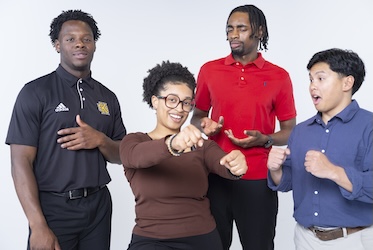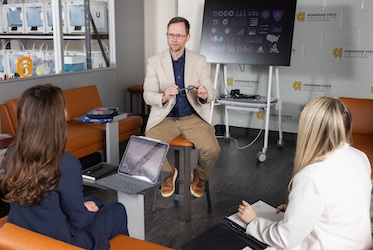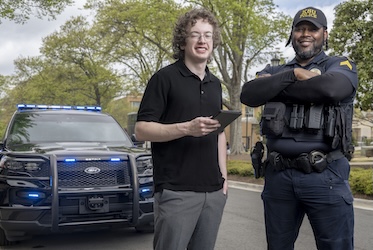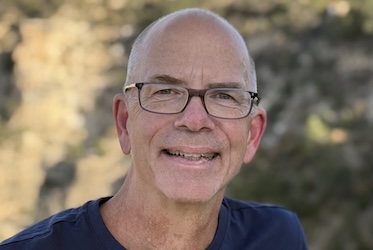
Kennesaw State students partner with state government to grow music industry
KENNESAW, Ga. | Dec 10, 2020
The state of Georgia is looking to strengthen its position in the music business, hoping for a repeat of the success still enjoyed by the film and television industries. To that end, they recently partnered with Kennesaw State University to develop a statewide database of musicians and related professionals that will help productions locate Georgia talent.
Earlier this year the Georgia Department of Economic Development asked Kennesaw State’s Joel A. Katz Music and Entertainment Business (MEBUS) program to create a directory of the roughly 20,000 Georgians working in various capacities within the music industry. The recently launched directory includes artists, venues, studios, managers, marketing firms, attorneys and schools.
“This directory is going to significantly drive workforce development in Georgia’s music industry,” said Keith Perissi, executive director of the MEBUS program. “Whether you’re a talent buyer looking for great artists; a production company in need of sound, light, or video; or an artist looking for a manager, lawyer, agent or other music business service, the directory will be incredibly valuable.”
Students in the MEBUS program, which is housed within the Michael J. Coles College of Business, worked on the project alongside their peers in the College of Computing and Software Engineering. MEBUS students performed the front-end data collection, pulling information from multiple online resources, while the CCSE students built the system’s back end, including a self-service web form where professionals can add themselves to the directory.
“It was an incredible partnership,” Perissi said. “The two groups met virtually on Microsoft Teams every Wednesday and finished the project by the end of the semester. The entire project was an excellent learning opportunity for our students.”
Jeff Chastine, interim dean of the College of Computing and Software Engineering, said the partnership was a great way for his students to see the real-world applications of the computing knowledge they gain in the classroom.
“This was an incredible opportunity for our students to work with MEBUS students and see firsthand that computing doesn't exist in a vacuum,” Chastine said. “It needs to be applied to something – and that's where innovation is found. The project also shows that students with very diverse backgrounds can work together to produce something amazing.”
By creating visibility for professionals in Georgia’s music industry, Perissi expects the directory to help more organizations take advantage of the Georgia Music Investment Act, which provides a 15 percent credit on productions spending more than $500,000 in the state.
MEBUS executive-in-residence Bryan Calhoun, who also is director of artist marketing and industry relations for Pandora Media and head of digital strategy for Blueprint Group/Maverick, believes Georgia’s music industry is poised for rapid growth thanks to efforts like the directory and tax incentive.
“This business is based a lot off of relationships,” Calhoun said. “A directory will be especially helpful for people developing their own rolodexes and will make it easier for those who are not already well-connected to meet people. And, if a tax credit could help the music industry in Georgia a fraction of what it has done for film and TV, then that would also be a huge boost.”
The directory is not the only way the MEBUS program is working to build Georgia’s recording industry. Perissi recently spoke to the Georgia Senate Study Committee on Music Workforce Development on behalf of Georgia Music Accord, a coalition of public and private investors looking to build a Grammy Museum in downtown Atlanta. The proposed Grammy facility would enhance tourism and provide training and educational outreach for students looking to work in entertainment – including students in the MEBUS program.
Perissi also has been a member of Governor Brian Kemp’s Georgia Film, Music and Digital Entertainment Office Advisory Board since November 2019, helping grow the entertainment business in the state. One recent success has been helping organize safe, socially distant drive-in concerts for Georgia artists during the COVID-19 pandemic, including one featuring MEBUS alumnus Carly Burruss.
Music recording and performance already has a $3.7 billion impact on the state of Georgia, according to the Department of Economic Development. The efforts of Perissi and his students in the MEBUS program could help that number continue to grow, creating more opportunities for Georgia workers.
“A lot of people are still recording music in Georgia,” Perissi said. “But you don’t hear about it because it doesn’t have the same glitz and glamor of Hollywood. Music is often created privately behind closed doors. There’s a lot of music business being created now – more than ever, actually. These efforts are only going to create more opportunities for Georgia musicians and music businesses.”
— Patrick Harbin
Related Stories

Kennesaw State to revive bathtub race tradition with new video game

Kennesaw State marketing students apply research skills to the real world by assisting nonprofits

Kennesaw State student develops AI tools to help first responders diagnose behavioral health issues

Kennesaw State professor honored by American Accounting Association as 2025 Presidential Scholar
A leader in innovative teaching and learning, Kennesaw State University offers undergraduate, graduate, and doctoral degrees to its more than 47,000 students. Kennesaw State is a member of the University System of Georgia with 11 academic colleges. The university’s vibrant campus culture, diverse population, strong global ties, and entrepreneurial spirit draw students from throughout the country and the world. Kennesaw State is a Carnegie-designated doctoral research institution (R2), placing it among an elite group of only 8 percent of U.S. colleges and universities with an R1 or R2 status. For more information, visit kennesaw.edu.














